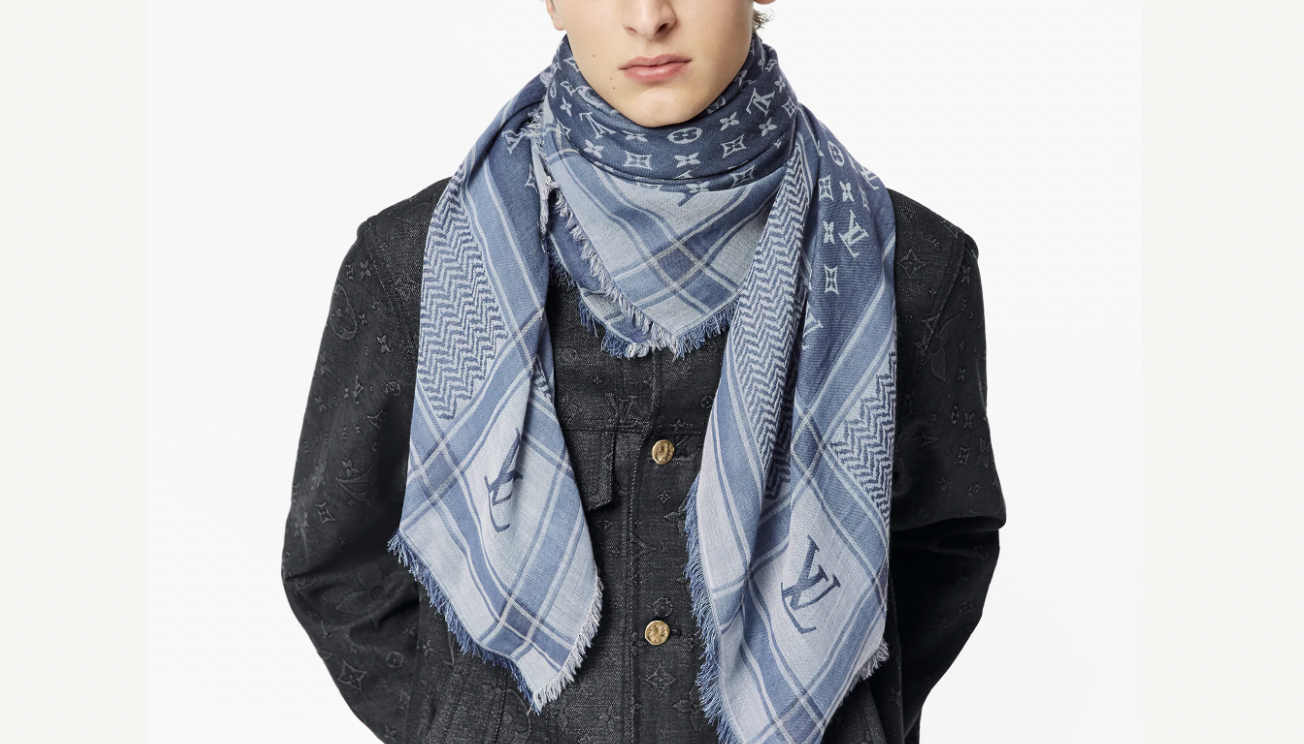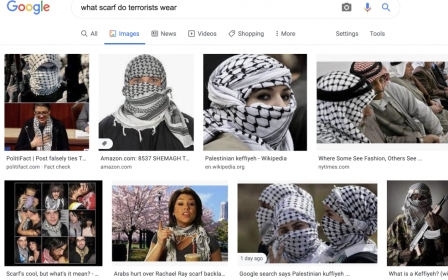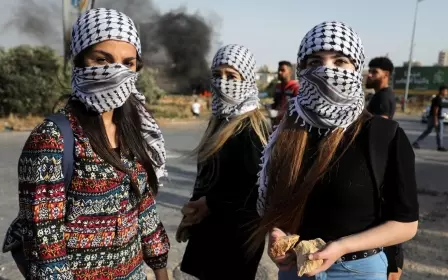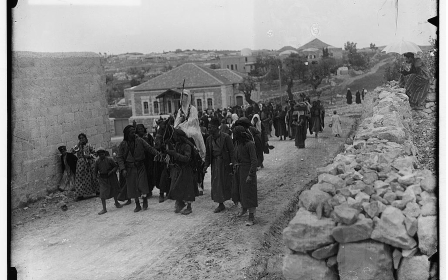Louis Vuitton under fire for 'disgusting' $700 keffiyeh

Fashion house Louis Vuitton has come under fire for marketing a $700 scarf heavily influenced by the traditional Palestinian keffiyeh.
The company, which is one of the world’s leading fashion brands, with an approximate value of $16bn, has been condemned for appropriating Palestinian culture for commercial gain while omitting the symbolism behind the keffiyeh in its product description.
The blue scarf is advertised on the Louis Vuitton website and includes its iconic "LV" logo. Described as a "stole" - another name for a long scarf or shawl - it is “inspired by the classic Keffieh”, but it is further described as a "timeless accessory" which "creates an easy-going mood".
The keffiyeh is a headscarf traditionally worn by Levantine farmers and Bedouin, and in the past century has come to symbolise Palestinian resistance against colonialism and Israeli occupation.
Fendi also facing a backlash
New MEE newsletter: Jerusalem Dispatch
Sign up to get the latest insights and analysis on Israel-Palestine, alongside Turkey Unpacked and other MEE newsletters
Louis Vuitton is not the only fashion house using the Palestinian keffiyeh in its designs. Fendi, an Italian luxury fashion brand, is selling its own take on the traditional scarf for £590 ($835).
While a number of social media activists have accused the fashion brands of insensitivity with regard to the timing of the release of their products, it is not immediately clear when the keffiyeh-influenced designs were first put on sale.
"Palestinian genocide is not something for you to capitalise on," one person Tweeted to Louis Vuitton. Another said: "Remove this from your site immediately, it's disgusting."
Israel killed at least 243 Palestinians in Gaza, including 66 children, during a bombing campaign in the besieged Palestinian territory in May.
The fashion furore is not the first to involve the iconic Palestinian scarf. There was outrage last month when Google searches for the query "What scarf do terrorists wear?" returned the keffiyeh as the top result.
Many have pointed out the irony that a supposed symbol of terrorism could also become a lucrative commercial product.
While some activists called for the boycott of the brands involved, others urged the fashion houses to release a statement in support of Palestinian communities.
For Palestinians, the keffiyeh has become synonymous with their cause. The traditionally black-and-white-chequered cloth has been worn throughout the world by activists, protesters and even celebrities as a symbol of solidarity with the Palestinian people.
While fashion houses are selling the keffiyeh for hundreds of dollars, Palestinian manufacturers do not have the same luxury. Local keffiyeh factories in the occupied Palestinian territories have been forced to shut down, since the scarf started to be produced elsewhere. Now, only one keffiyeh factory remains in Palestine. Owned by the Herbawi family, the factory has been in operation since 1961.
Middle East Eye has reached out to Louis Vuitton for comment.
This article is available in French on Middle East Eye French edition.
Middle East Eye delivers independent and unrivalled coverage and analysis of the Middle East, North Africa and beyond. To learn more about republishing this content and the associated fees, please fill out this form. More about MEE can be found here.




